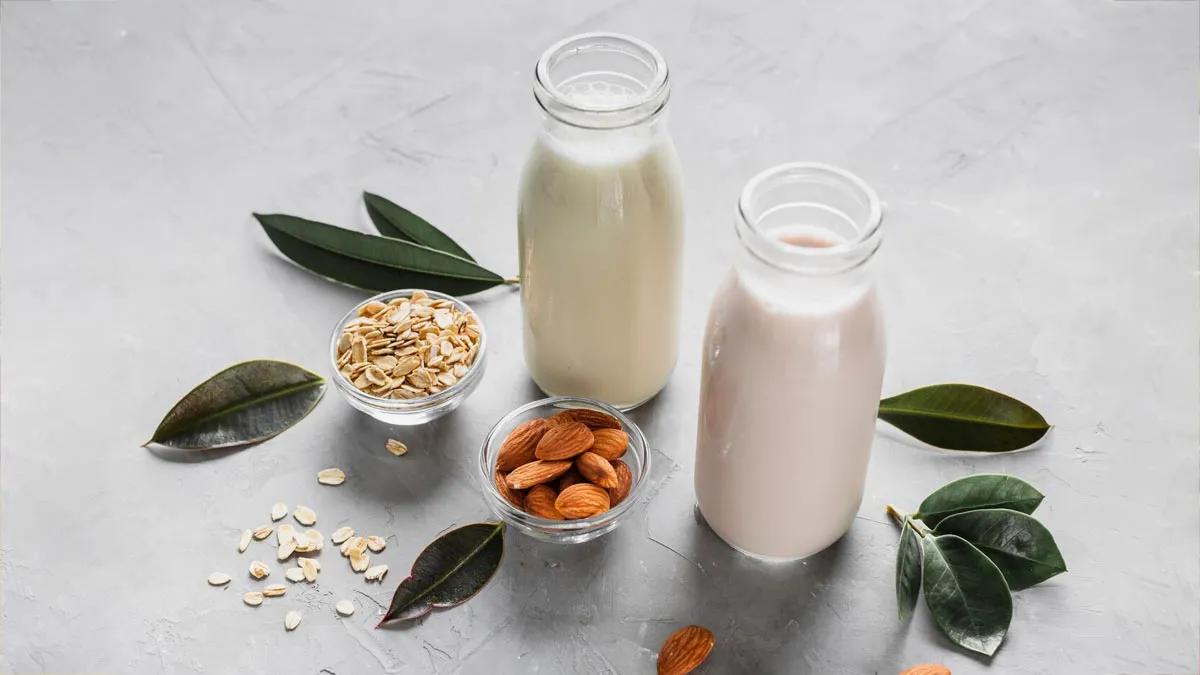
For generations, dairy consumption has been considered essential for strong bones and overall health, making it a part of our daily diet. However, milk and its products may not be suitable for everyone. This is where plant-based milk can be considered. But an important question arises: Are these options really better for kidney health, or is it only another passing trend? Nidhi Nahata, lifestyle coach and founder of vegan eatery restocafe JustBe, helps us understand it better.
Dairy may pose a major risk to your kidneys. Ms. Nahata lists out 3 such:
Dairy, especially cow's milk, contains high levels of phosphorus and casein protein. While phosphorus is essential for bone health, excessive intake can put significant stress on the kidneys, especially for individuals with kidney disease or a genetic tendency for kidney issues.
"When the kidney function declines, additional phosphorus is formed in the blood, leading to further complications, including weak bones and cardiovascular problems," she adds.
Dairy contributes to body acidity, forcing the kidneys and bones to work harder and neutralize it. Many experience low-grade inflammation due to lactose intolerance or casein sensitivity, which impair kidney function over time.
Dairy has been linked to increased body swelling, which can spike the existing kidney conditions and contribute to deteriorating overall health.
Don't Miss: Garlic To Aloe Vera Juice: 14 Food Items That Can Help You Detox Kidneys Post Festive Season
Given this scenario, one may think of switching to plant-based milk. Choosing the right kind can lead to a significant difference in kidney health. For people with kidney concerns, oats, and soy milk are generally better options than almonds or coconut milk, points out Ms. Nahata.
She details the 4 options:
Low in phosphorous naturally lactose-free, oat milk is a favourite option for individuals suffering from kidney stones. It is also soft on digestion and provides the necessary nutrients without overloading the kidneys.
Rich in high-quality protein and low in phosphorus than dairy, soy milk offers a balanced and renal option. Additionally, its plant-based protein supports muscle maintenance without taxing the kidney.
While a popular dairy option, almond milk contains high levels of oxalates, which can increase the risk of kidney stones for those susceptible. Moderation is important when consuming this.
Although creamy and delicious, coconut milk is more saturated fat, which may not be ideal for individuals with kidney concerns. It should be consumed with restraint.
As for who should consider switching to plant-based milk, the lifestyle coach says those who have a history of kidney disease or kidney stones, experience inflammation as a result of dairy consumption or want to reduce phosphorus intake to support kidney function can go for this alternative.
"Going for plant-based milk is not just a trend. It's an active option for better health. A mindful diet today can ensure long-term kidney function and overall welfare," wraps up Ms. Nidhi Nahata.
Don't Miss: Expert Says How You Can Use Coconut Milk For Hair Growth
If you liked this story, please share it. For more such articles, stay tuned to HerZindagi.
Our aim is to provide accurate, safe and expert verified information through our articles and social media handles. The remedies, advice and tips mentioned here are for general information only. Please consult your expert before trying any kind of health, beauty, life hacks or astrology related tips. For any feedback or complaint, contact us at [email protected].